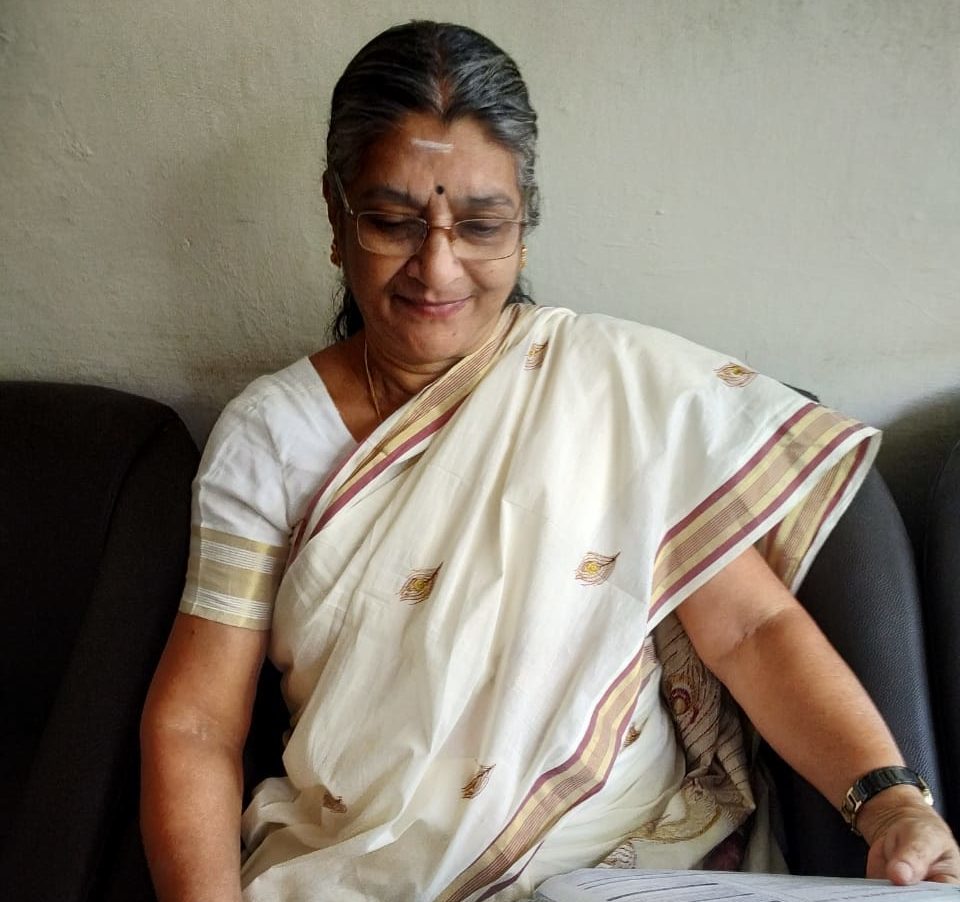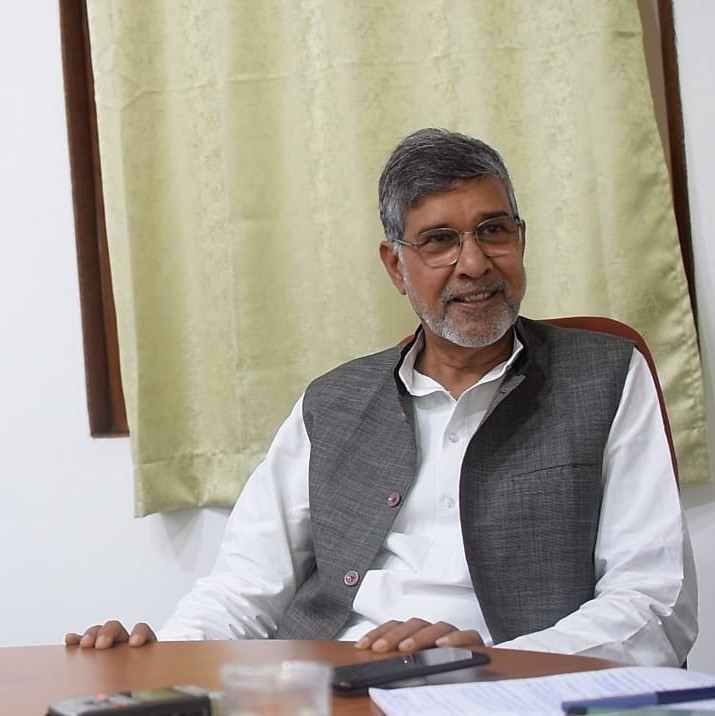Those of us who’ve taken the French elective in the past know of the lovely professor that dealt with us patiently as we messed up the most elementary sentences. To kick-start our Know Your Prof series, T5E sits down with the ever-exuberant Prof. Krishnaveni K to talk about her journey with la langue française, the courses she teaches, her students over the years, and much more!
Bonjour! The first among the myriad of things I was going to learn over the course of the next twenty minutes.
Early in the morning, the journey from home to the institute hadn’t been enough to pull down Madame’s energy level a bit- she greeted me with a wide smile and a visible eagerness for her upcoming lecture at eight. “I can’t afford to spend one second less teaching my beloved students, so let us proceed with the interview immediately!” said the look on her face and without any further delay, I promptly began!
T5E: Can you take us through your journey- when and how did you start studying French, and what led up to this?
I had French as my second language all through my school days and also in the first two years of my Bachelor’s Degree. Then, I did my Master’s Degree in French from Kamaraj University before starting to work in St. Xavier’s College, Trivandrum. That wasn’t an end to my academics though; soon after shifting to Chennai, I started off with my MPhil degree. Finally, to top it all off, I completed a PhD in French from Madras University, and bid adieu to studies once and for all. All through this, I was also simultaneously doubling up as a French lecturer in different colleges in Chennai and Trivandrum. As for my time in IIT as a visiting professor, I have been teaching here since 2006.
T5E: How do you feel about working as a French professor right now?
Unlike many professions where the work feels saturating after the initial few years, I really look forward to teaching even to this day. Also, I cannot express in words how close to my heart I hold this language. More than work, I consider teaching to my dear students as a way to refresh myself in this otherwise busy world, and the enthusiasm I have for teaching hasn’t changed over the years!
T5E: Now that you have been in IIT for quite a few years, can you take us down memory lane to show us how IIT in general, and the Humanities Department in specific, have shaped up in your opinion?
Since I am a visiting professor, I don’t get to spend a lot of time in this lush green campus. I have really liked the way IIT functions as a student-centric institution. Over the years, it has become more welcoming for exchange students, and I do get to see some native French speakers occasionally. In retrospect, a lot has happened over the past ten years: for one, I see a lot of new and exciting courses being inducted into the curriculum with every passing year. The Humanities Department, too, has become bigger and better, with a larger faculty pool and a plethora of courses to choose from. As they say, only change is permanent and we are making giant strides from what I can observe, although I am oblivious to the cutting-edge research work happening in technical disciplines.
T5E: If you had a chance to go back in time, would you still major in French, or does some other field in Humanities entice you? Or would you not even choose Humanities in the first place?
Yes! (to the latter part of the question, surprisingly enough)
I always had a liking for Math. Not just Math; I developed a soft corner for science courses in general but, owing to circumstances, I couldn’t pursue my Bachelor’s in Science. I wasn’t exactly what could be called ‘extraordinary’ in French as well. I have definitely had my fair share of failed French courses as a young student! I was hoping I would be able to venture back into Science at some point. However, owing to the fact that I got married right after my Bachelor’s, I wasn’t able to study or work for some years right after and that essentially closed a lot of doors for me. I resorted to doing my Master’s Degree in French. It was then that my passion for French increased exponentially, thanks to the excellent teachers I had. I eventually graduated with a Gold Medal, and finally, here I am!
T5E: If you hypothetically had some powers now to make bureaucratic decisions, what changes would you like to bring about in IIT?
No, no, the state of the situation is pretty much perfect, and I would just like to maintain status quo. Perhaps I would increase the number of French courses we offer to undergraduates, though, from the current two to four. The students, in turn, can claim a minor in French; doing four courses will ensure that they attain mastery of the subject. This will go a long way in making their lives hassle-free if they happen to settle or study further in French colonies. Also, I would initiate a lot of exchange programmes with French universities, so that our students can relate to the French culture that they learnt about only verbally in their French courses. Even better would be a sponsored trip for high achievers in French, but I guess that’s too much to ask for!
T5E: Is there any drastic difference that you observe between students now and those who graduated, say, ten years ago?
Well, this is a tricky question. Compared to my students from other colleges, IIT students come across as smart people. Every class I have taught has lived up to, if not exceeded, my expectations. One thing I could maybe point out is that the students a decade ago tended to be more like the stereotypical silent ‘good boys and girls’ than the present bunch of students. In my opinion, this has got lots to do with the advent of technology and the rate at which students are learning about the world. I can clearly see the difference in the efforts put in, but the pace at which students grasp new things quickly has remained constant ever since I entered the gates of IIT.
T5E: Considering the fact that for the most part, engineering junta end up choosing humanities courses either by seeing what their peers opt for, or by making decisions with the half-baked knowledge they acquire through hearsay, can you give us a quick sneak peek into what’s in store for students choosing your courses?
The course assumes that the student is completely new to French, so people who have already studied French may enjoy an upper hand. We start off with basic grammar and then move on to constructing words and sentences. The purpose of the course is to impart elementary proficiency in French. Various aspects of French culture are also presented to instil interest in students. The academic rigour is lesser than most courses, but the least I expect from the students is to submit assignments before due. The course is inherently less demanding but plagiarism will not be entertained, so students have to get over the urge to copy assignments either from peers or from the internet. More often than not, I can figure that out easily. With all that being said, the course is fun-filled and I encourage lots of students to learn lots of French!
T5E: Are there any interesting anecdotes you would like to share from your teaching career spanning over several decades?
One of the highs in my career was when a student dropped by and thanked me after presenting a paper in French!
He had been to France to pursue his Master’s Degree and his wholehearted thanks meant a lot to me as a teacher. Many times, my students end up forgetting French as the days roll by, and they are not to blame. It goes without saying that my happiness knew no bounds when I heard that he had presented a whole research paper in French.
Apart from this, sometimes we discuss with colleagues lighthearted moments from our classrooms. One such prominent discussion which features regularly is about engineering students and their arguments about the ‘technicalities’ of the language. They end up using the term ‘technically’ instead of ‘grammatically’ and start questioning the principles on which the language lies, and view language too from an analytical viewpoint. One more incident right off the top of my head is of a particular student who submitted a particular French assignment. I was in awe of the vocabulary he used. Upon interrogation, he couldn’t even explain the very first sentence, and apparently he had copied the whole assignment from the internet. I’d like to re-emphasise on not copying others’ work. You might get short-term satisfaction through that in the form of grades, but you will surely regret later.
Just as I looked down to ensure I hadn’t missed any question, “Au revoir!” came Ma’am’s voice. “It’s about time, I have to leave for class now,” she said, carrying the same smile with which she greeted me as she started walking towards her classroom.
One minute to eight, read the clock.
Series by: Akash Reddy





A great teacher and a great human being !